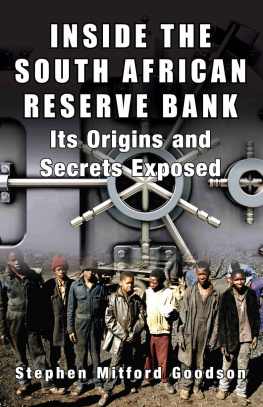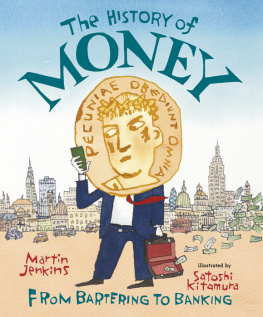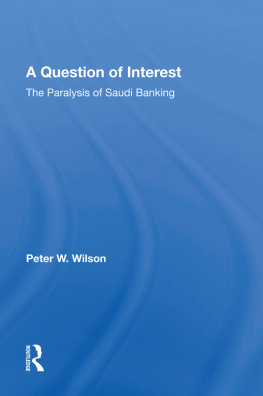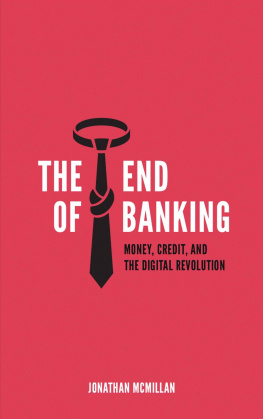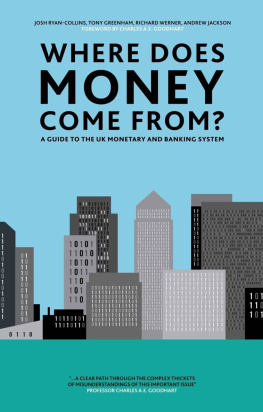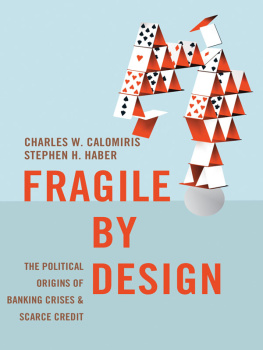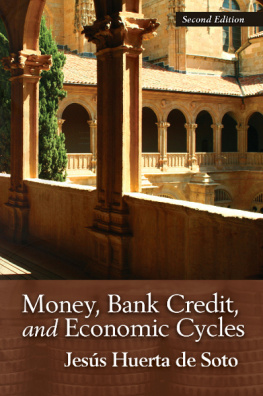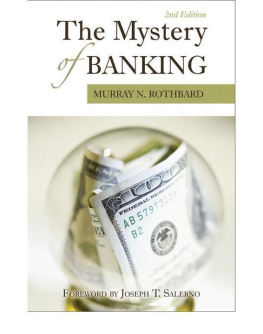All rights reserved. Nopart of this book may be reproduced in any form by any electronic or mechanicalmeans including photocopying, recording, or information storage and retrievalwithout permission in writing from the publisher.
or the history of theOccident durin the past 2000 years unless you look at one or two problems;
namely, sheenies andusury.
One or the other or BOTH.I should say, both.
Foreword
This book is bound to be controversial and engenderstrong reactions, and I do not endorse all of the viewpoints expressed therein.
Why would a seemingly arid subject mattersuch as the history of central banking and of the monetary system give rise tosuch strong reactions? One must wonder why some will attach to this book thestigma of heresy, and argue that Stephen Goodson has gone beyond the parametersof acceptable historical debate.
Goodson has the credentials andtrack-record to make a credible presentation of a subject matter which he hasresearched for decades and which he has lived personally as a non-executiveDirector of the South African Reserve Bank.
I do not have the expertise to say whetherGoodsons findings are accurate, but I do know that the raw nerves he touchesare on account of central banking and the monetary system created thereunderbeing at the core of the persistent profound and inhumane differences in wealthdistribution within any given country, and among countries.
For this reason, for several years, myParty and I have argued that South Africa should reform its central banking andmonetary system, even if that means placing our country out of step withiniquitous world standards.
Books on economics and banking aregenerally viewed as being abstruse, whose readers are confined mainly toacademia and the business world. In this case we have a notable exception.
This work provides not only a broad sweepof the history of economics over almost three millennia, but insights into howthe problems of usury have been confounding and enslaving mankind since itscivilized existence first began.
It may shock some to realise that centralbanks throughout the world, including our own South African Reserve Bank, donot serve our own best interests and are in fact in league with private banks.This not only undermines our sovereignty, but deprives us of the means ofhaving publicly-issued debt-free money which belongs to the people as itssovereign debt, and interest-free means of exchange. Instead, in our country,as in other countries, we use private money produced out of debt by the privatebanking system. Shifting from bank-notes to government-notes would provide ourpeople with a decent life, which is blessed, prosperous and sustainable. Butsuch a simple reform would be a real revolution, more difficult to bring aboutthan any other reform or social change imaginable.
Although South Africa gained its freedom in1994 in all its outward manifestations; inwardly, with the exception of a smallminority of black and white entrepreneurs, the general population has neitherbenefitted nor thrived, and moreover has not realised its latent potential,mainly because of the defects in the monetary system. If we are to achieve realfreedom, it is imperative that monetary reform be pursued with the same vigourand intensity as was displayed towards political reform during the struggleyears. But that requires understanding the complex issues of how money iscreated, whom it belongs to and whose interests it serves.
In this book, Goodson has not only sketchednumerous successes of previous states rather than private banking systems, buthas also provided us with a blueprint which may address many of our entrenchedsocial problems, such as low economic growth, high unemployment and decliningservices.
Albeit decidedly controversial, this is abook which thinking South Africans should read as an inspiration for politicalaction.
In his address before the AmericanNewspaper Publishers Association on 27 Apri, 1961, President John F. Kennedyfamously stated: Without debate, without criticism, no administration and nocountry can succeed and no republic can survive. That is why the Athenianlawmaker Solon decreed it a crime for any citizen to shrink from controversy.
Prince Mangosuthu Buthelezi MP
President of the Inkatha Freedom Party
Republic of South Africa
Introduction
History is the most crucial subject of anyeducational system superseding science and the humanities in importance. Withinits fabric, it holds the culture, traditions, beliefs, ethos and raisondetre necessary for the continued existence of any people. If history iscompromised by falsifications and omissions, which are frequently imposed byoutsiders, then that civilisation will decay and finally collapse, as may beobserved in the slow disintegration of Western civilisation since 1945. GeorgeOrwell expressed a similar sentiment in 1984 when he wrote: The mosteffective way to destroy people is to deny and obliterate their ownunderstanding of history.
Winston Churchill once made the observationthat the further one goes back into history, the clearer the picture becomes.By employing this technique the author is hopeful that any doubts, whichreaders may have concerning his analysis and exegesis of modern historicalevents will be assuaged, if not entirely eliminated.
For any nation/state/society/community tohave full sovereignty and independence in its affairs, absolute control overthe means it employs to exchange goods and services must reside with theorgans, which represent the people, and must not be delegated to privateindividuals.
Throughout recorded history periods ofstate control of the money supply have been synonymous with eras of prosperity,peace, cultural enrichment, full employment and zero inflation. However, whenprivate bankers usurp control of the money creation process, the inevitableresults are recurring cycles of prosperity and poverty, unemployment, embeddedinflation and an enormous and ever increasing transfer of wealth and politicalpower to this tiny clique, who control this exploitative monetary system.Whenever these private and central bankers have been opposed in the past bynations seeking restoration of an honest money system, these parasitic bankershave invariably invoked a patriotic war in order to defeat the much malignedenemy. This has been a feature of almost all wars during the past 300 plusyears.
This book provides insights as to howprivate bankers since ancient times have abused monetary systems, whether theyare based on coin, bank notes, cheque or electronic money, by creating moneyout of nothing as an interest bearing debt in order to arrogate supreme powerto themselves. It also provides a record, both ancient and modern, of societiesand civilisations which have flourished in an environment free from the burdenof usury.
The solution is simple and self-evident. Ifwe wish to obtain our liberation and sovereignty from the enslavement imposedby the private bankers, we must dismantle their fractional reserve system ofbanking and supporting central banks, or we ourselves shall be destroyed and consignedto oblivion.


